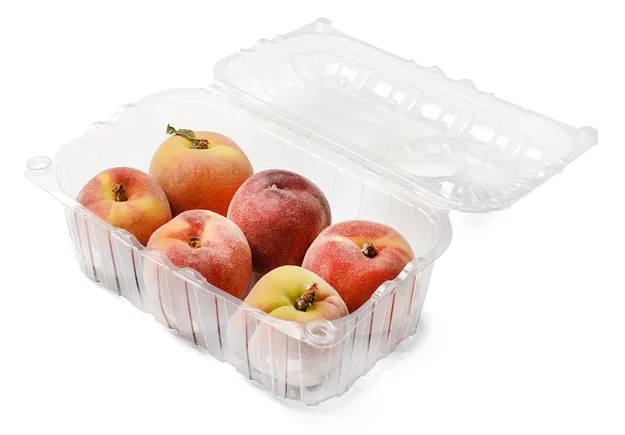The laborious and not yet definitive agreement between the European Council and Parliament on the Packaging and Packaging Waste Regulation (PPWR) was welcomed by many as the achievement of a balance between environmental, economic and social needs.
However, reading article 22 and its annex dedicated to restrictions (i.e. prohibitions) is enough to understand that, if this is the final version, it will severely hinder the effectiveness and penetration capacity of the Italian fresh produce sector in Europe, cause more costs for the catering business, and limit the safe and economical access to mass food consumption.
Despite the commitment of the Italian government and its many representatives in Brussels, and overturning the reasonable proposal voted by the European parliament, article 22 has focused only on plastic packaging, hitting rock bottom when it comes to the packaging of fruit and vegetables.
Article 22 bans the packaging of unprocessed fruit and vegetables for quantities below 1.5 kg, but also sets the possibility for each member state to introduce specific exemptions due to proven needs to safeguard specific varieties, as well as the option for member states to maintain further prohibitions whether already envisaged by national laws, and for the European Commission to add new prohibitions in the future.

Anyone who has a minimum knowledge of the basics of community trade can assess whether this is sustainable or not and, most of all, of how high the risk is to undermine the fundamental concept of single market, actually creating multiple national laws on packaging.
The result is simply the destruction of the fresh produce packaging producer sector, an Italian excellence at European level, considering that over 70% of the packaging used all over Europe is produced by Italian companies.
Italian plastic packaging producers have always invested in sustainability, and already develop a circular economy made of growing recycling percentages of the produce placed on the market.
We place on the market packaging that is so advanced that, in many cases, it already complies not only with the criteria of regulation 2023/2486 ("Regulation on Taxonomy" that should define "sustainable" activities and products), but also with those that the same PPWR sets as targets for 2040 (recyclability associated with an average content of recycled matter equal to 70% of the weight of the object.)"
Italian exports are growing also thanks to the availability of these effective and sustainable solutions. And their existence is also why well-preserved tomatoes from Pachino can be found in Berlin at affordable prices.
There is no objective data (none!), not even in the same study on which the PPWR is based, that shows how the alternatives set forth by the PPWR have an environmental impact that is lower than that of plastic packaging. Quite the opposite, actually!
The great preservation ability of plastic packaging reduces deterioration and therefore the risk of food waste: an essential aspect that a holistic approach aimed at global sustainability (contained + content) cannot overlook, and which the legislator did overlook.
Environmental sustainability cannot be separated from economic sustainability: alternative packaging costs at least double and this extra-cost, added to the "invisible" cost of the food thrown away because it deteriorates quicker, will fall back on growers and final consumers, generating inflation for many products, even high-quality ones.
Today, the presence of cheap plastic packaging can be a deterrent against the growth in prices of alternative packaging and distribution: what will happen in the future?
We must be clear: in many cases, what is considered the main and most effective alternative to plastic, i.e. paper, is not only paper but the result of the pairing of paper and plastic!
This makes recycling of "paper" (+plastic) packaging more complex, and leads to a degradation of the recycled material which, therefore, can no longer be used for food, which is instead in many cases feasible with recycled plastic.
The replacement of plastic with bioplastic is also not a realistically viable solution: our companies have already been producing bioplastic containers for years but, in this case, the availability, cost and functionality limits make this alternative a good one only for a minimum part of the demand.
It must also be highlighted that the big retail chains have already carried out a sort of selection of what is to be sold loose (around 50% of the total), and have introduced alternatives to plastic where realistically possible.
The PPWR also prohibits the use of plastic containers in the H&R sector, starting with plastic cups: a radical exacerbation of the recent - and not yet fully implemented - Directive on Single-Use Plastic (SUP).
Coincidentally, plastic cups are another product category for which Italian companies hold a leading position on the European market: they have been prohibited by the regulation right after producing companies invested hundreds of thousands of Euros to bring their production systems into compliance with the abstruse demands of the Directive in terms of compulsory marking (i.e. the famous turtle logo)
All this against what environmental benefits?
It has been proven that the environmental benefits that the PPWR would bring (overall!) were calculated badly and partially: in terms of CO2 emissions, less than 1% of what produced every year by the European Community.
The PPWR does not bear fruits, but is rather the (poisoned) fruit of an anti-plastic ideological preconception.
The PPWR nullifies all the investments in sustainability made by our companies.
The PPWR cancels over 2,000 jobs in Italy, only considering direct employees.
The PPWR reduces the international competitiveness of the Italian agri-food system.
The PPWR hinders the further growth of the Italian recycling industry: when managed well, plastic is a good opportunity and not a threat, and this production-distribution model should be taken as an example, not condemned.
